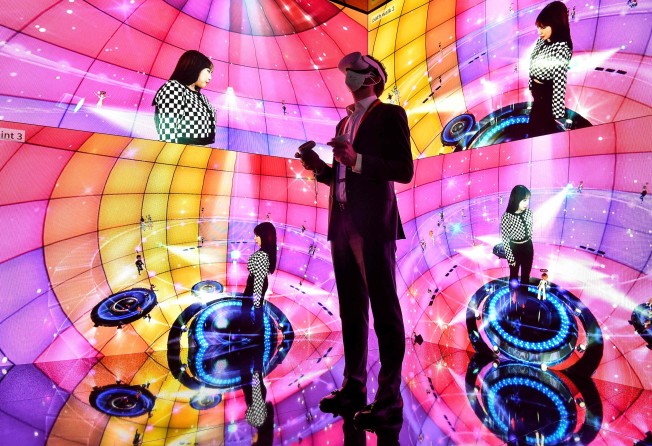Regal Hotels plans metaverse convention centre as it bets that avatar-based business conferences will upend video meetings
- Regal is preparing to launch a virtual convention centre whereby large-scale industry conferences can be live-streamed to attendees
- Hotels operator says it is in discussions with organiser of a leading sustainability conference slated to take place in Hong Kong this year

Corporate events and industry conferences will likely operate in a hybrid mode in a post-Covid world whereby live events will be broadcast simultaneously into the metaverse, according to the head of Regal Hotels, which is preparing to host virtual events in The Sandbox.
As the first listed property group in the city to invest in virtual land in Mega City, a Hong Kong-inspired cultural hub within blockchain gaming platform The Sandbox, Regal Hotels has big plans for the green metropolis it is building there, said vice-chairman and managing director Poman Lo.
It is preparing to launch a virtual convention centre whereby large-scale industry conferences could be live-streamed to the attendees, and unlike online conferencing platforms such as Zoom or Microsoft’s Teams, participants would be able to network and meet new business partners in the form of avatars, she said.
“The format of corporate meetings and conferences will not be either online or offline, but will take on a hybrid model whereby it will also enable participants to continue with their networking,” said Lo. “The metaverse has made it possible to engage attendees in ways that are not yet available on [existing] video conference platforms.”
Regal Hotels said it is in discussions with the organiser of a “leading sustainability conference” slated to take place at a convention centre later this year on broadcasting part of the sessions at its virtual conference centre.
3D, avatar-based business conferences have been touted as one of the use cases for the metaverse, which refers to an immersive online universe created by the convergence of physical, augmented and virtual reality.
Artificial intelligence and search engine giant Baidu hosted its first three-day AI developers’ virtual conference last year on its metaverse app “Xirang”, or Land of Hope, enabling 100,000 attendees to interact. NetEase’s virtual event platform “Yaotai” presented the Hong Kong stock exchange listing ceremony of its own music streaming unit NetEase Cloud Village last November.
Hosting business events has traditionally been one source of revenue for the hotel industry. But with outbreaks of Covid-19, many of these offline events have moved to video conferencing, a market forecast at US$6.9 billion this year, according to research firm Fortune Business Insights.
As one of the largest hotel operators in Hong Kong with over 8,200 rooms, Regal Hotels’s 2021 performance was hit hard by Covid-19 related travel restrictions. Its 2021 net loss totalled HK$494.4 million (US$63 million), down 44 per cent from a loss of HK$885.9 million the year before.
The group has long-term ambitions for the metaverse and non-fungible tokens (NFTs), seeing such new frontiers of the internet as a way to promote financial inclusion, and carbon-conscious behaviour. It also plans to enable proptech start-ups to showcase their latest technologies to property developers in the virtual residence in the Mega City.
It plans to sell up to 100 green hotel and residential units in the form of NFTs, enabling the younger generation to own virtual real estate in the least affordable housing market of the world, where the median house price requires as much as 23 times the household income of the average citizen.
“The metaverse and NFTs can promote greater fractional, virtual real estate ownership among the younger generation, who are largely priced out of the market,” said Lo. “This enables greater financial inclusion.”
Regal estimates that as many as five million people, or two-thirds of Hong Kong’s residents, could become “netizens” in its virtual green metropolis.